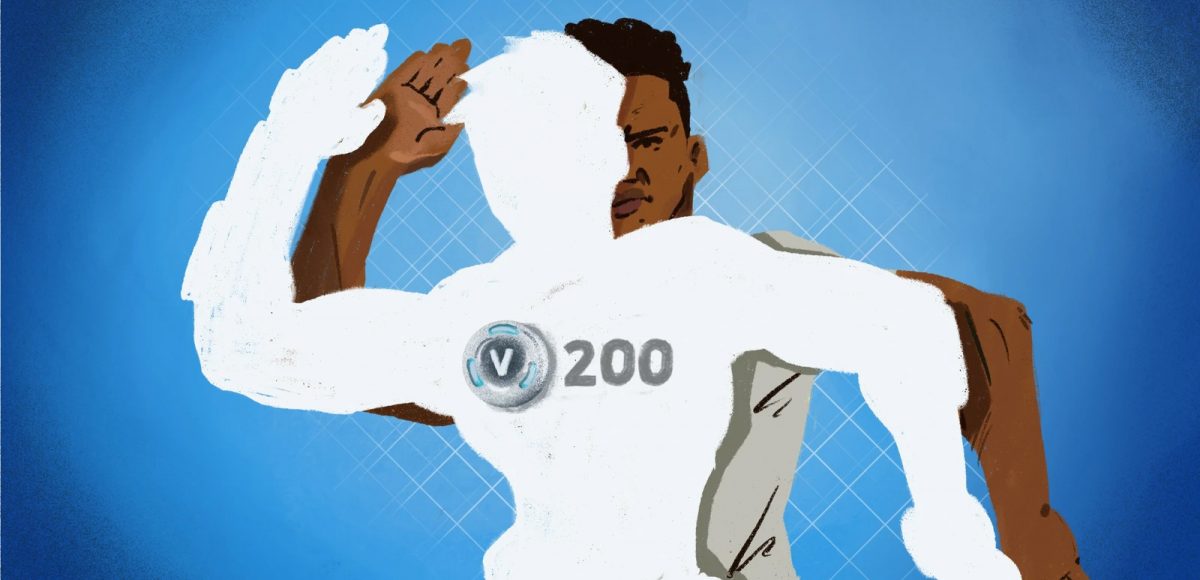At a recent wedding, after the main course is taken away and the desserts come out, the least weighed-down guests slowly make our way to the dance floor. All of a sudden, a group of kids dash out and immediately begin performing Blocboy JB’s Shoot dance, a goofy, energetic strut made famous in the eponymously named music video. As the oldest one kicks his limbs out in the signature style of the dance, he shouts “Fortnite!” to the confused adults looking on.
To his understanding, he is merely acting out the “Hype,” an iconic and highly prized Fortnite Emote. Reaching the dance’s true terminus would take him to the streets of Memphis, Tennessee; to the assembled young men, as they are captured in the song’s video, leaning on the trunks of cars, throwing dice, holding guns, laughing and dancing with abandon. But for him, and many others, the cultural connotations of the moves he is making begin and end within Fortnite’s shimmering, enclosing walls.
Fortnite, Epic’s ultra-successful free-to-play Battle Royale game, has come under increasing scrutiny for the wide breadth of popular dance routines it has cannibalized to make its Emotes, digitized dance moves which, along with weapon colors, outfits and character designs, can be purchased in-game using real currency. Many of the artists who’ve raised concerns about Epic’s behavior, some even resorting to lawsuits, are black.
Rappers like Blocboy JB and 2 Milly (whose arm-swinging “Milly rock” dance shows up in the game as the “Swipe It” Emote) have emerged at the forefront of those raising concern about Epic’s blatant appropriation of well-known black dances. The list continues, including other black entertainers like Marlon Webb, Alfonso Ribeiro, and Donald Faison, who all contributed comedic dances to the zeitgeist, with miscomprehension and exploitative cribbing as their reward.
Though no creative feat is achieved without inspiration, the manner in which Fortnite has transplanted the creative output of these men into its brightly colored marionettes, without permission, credit, or compensation feels particularly egregious. After all, the direction that this creativity travels is from those with less, those who spark viral brilliance from nothing, to those with so much more, absorbing whatever they can, erasing the past in the process.
The direction that this creativity travels is from those with less… to those with so much more, absorbing whatever they can, erasing the past in the process.
Much of the discussion surrounding Epic’s appropriations is concerned with whether the lawsuits being brought by 2 Milly, Ribeiro, and others, are legally feasible; it centers the letter of the law, asking whether Epic is allowed to lift these dance moves. But this ignores the (at least) equally pertinent question of whether it should. This question cannot be adequately answered without squaring Epic’s behavior within a long history of mainstream white America stealing music and dance from black artists, decontextualizing their work, and repackaging it to make it more palatable (and thus, profitable) to white audiences. From early vaudeville and minstrel shows, to television shows like Dick Clark’s American Bandstand, to musicians like Elvis Presley, white America has long maintained a largely unacknowledged extractive relationship with the creative output of its black folk.

